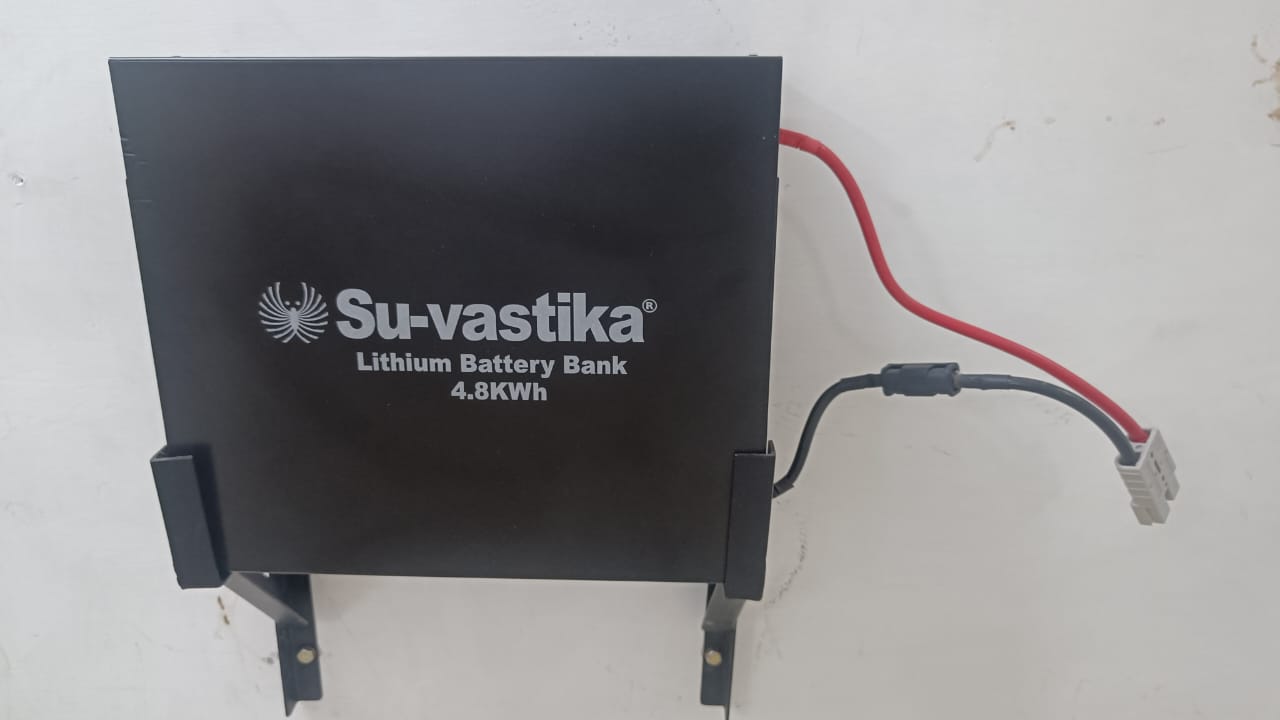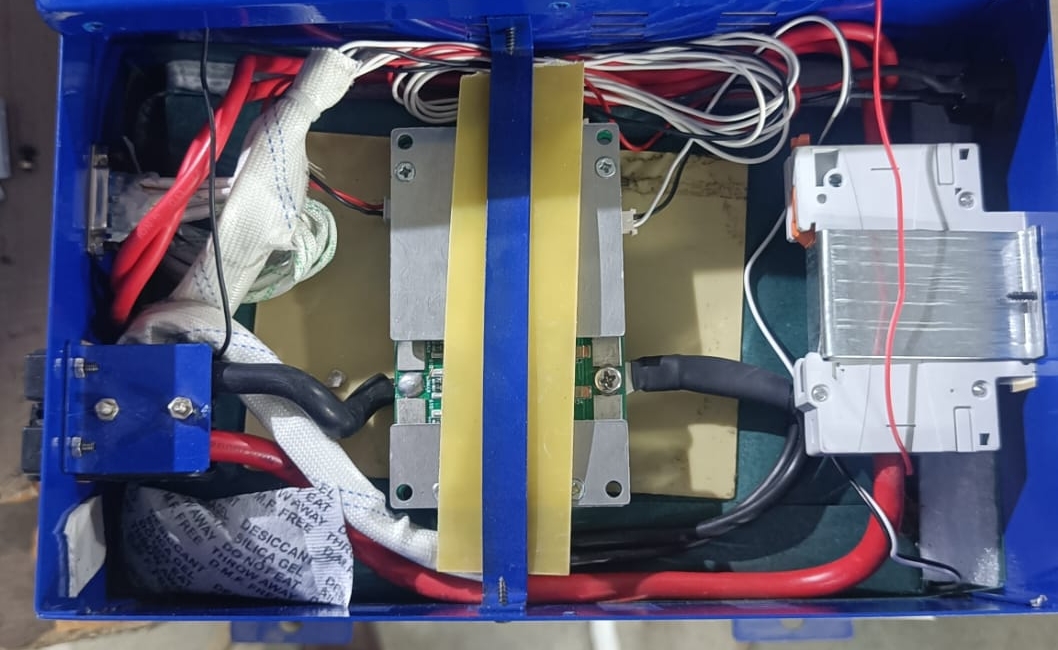What is a Lithium Battery? A Comprehensive Guide
The Power of Lithium Batteries: Benefits and Advantages, A lithium battery is a type of rechargeable battery that uses the reversible reduction of lithium ions to store energy. Lithium-ion batteries are the most common type of rechargeable battery used in portable electronic devices, such as laptops, cell phones, and digital cameras. They are also used in electric vehicles and some grid-scale energy storage applications.
Overall, lithium-ion batteries are a very versatile and powerful type of rechargeable battery. They are ideal for portable electronic devices and other applications where high energy density and long lifespan are important. However, they are also more expensive and have some safety concerns.

Advantages of Lithium-ion Batteries:
-
High Energy Density: Lithium-ion batteries have a higher energy density than other types of rechargeable batteries, which means that they can store more energy in a given volume or weight.
-
Long Lifespan: Lithium-ion batteries can typically last for hundreds of charge-discharge cycles, which is much longer than other types of rechargeable batteries.
-
Low Self-discharge: Unlike some other battery types, lithium-ion batteries lose minimal charge when not in use.
- Fast charging: Lithium-ion batteries can be charged quickly, which makes them ideal for portable electronic devices.
-
Versatility: They come in various shapes and sizes, making them suitable for a wide range of applications.
Challenges and Considerations:
-
Cost: Lithium-ion batteries are more expensive than other types of rechargeable batteries.
-
Safety: While generally safe, they can potentially overheat or catch fire under extreme conditions. This is why BMS (Battery Management Systems) are crucial for safe operation.
-
Environmental Impact: The mining and processing of materials for lithium-ion batteries can have environmental consequences. Recycling programs are becoming increasingly important to address this concern.
Future Advancements:
Research is ongoing to improve lithium-ion battery technology in terms of:
The Power of Lithium Batteries: Benefits and Advantages
Energy Density:
Energy density refers to the amount of energy a battery can store relative to its weight or volume. It’s a crucial factor influencing the performance and suitability of lithium-ion batteries for various applications.
Here’s a breakdown of energy density:
-
Units: Energy density is typically measured in Watt-hours per kilogram (Wh/kg) for a specific weight or Watt-hours per liter (Wh/L) for a specific volume.
-
Importance: Higher energy density translates to:
- Portable Electronics: Lighter and slimmer devices with longer battery life for laptops, phones, etc.
- Electric Vehicles (EVs): Vehicles with a longer range on a single charge and potentially lighter weight for improved efficiency.
- Grid Storage: More energy storage capacity in a smaller footprint for renewable energy sources like solar and wind.
-
Limitations: There’s a trade-off between energy density and other battery characteristics like:
- Safety: Certain chemistries with very high energy density might raise safety concerns.
- Cost: Researching and developing high-energy-density materials can be expensive.
- Lifespan: Pushing the limits of energy density might come at the expense of the number of charge-discharge cycles a battery can endure.
The Power of Lithium Batteries: Benefits and Advantages
Typical Range for Lithium-ion Batteries:
Today’s lithium-ion batteries typically have an energy density in the range of 200-300 Wh/kg. However, this is an active area of research, and advancements are being made to increase this value.
Future of Energy Density:
-
Theoretical Limits: Scientists believe there’s still room for improvement in energy density before reaching the theoretical limits of lithium-ion technology.
-
Research Efforts: Research is focused on developing new electrode materials with higher capacities and improved energy storage capabilities.
-
Solid-state Batteries: Solid-state batteries, still under development, hold promise for even higher energy densities compared to traditional lithium-ion batteries.
Understanding Energy Density:
When evaluating lithium-ion batteries for a specific application, it’s crucial to consider energy density along with other factors like safety, cost, lifespan, and discharge rate. The ideal battery choice depends on the specific needs of the device or system.
The Power of Lithium Batteries: Benefits and Advantages
Faster Charging:
Faster charging times would improve convenience for electric vehicles and other applications.
Here’s a breakdown of how it works and the trade-offs involved:
The Process of Fast Charging:
-
Conventional Charging: Standard charging involves applying a constant current (CC) until the battery reaches a specific voltage. Then, the charger switches to a constant voltage (CV) phase to top off the battery without overcharging.
-
Fast Charging Techniques: These methods alter the standard charging profile to achieve faster charging times. Here are two common approaches:
-
High Current Charging: This method increases the current delivered during the CC phase. While it speeds up charging, it can generate more heat and stress on the battery.
-
Multi-stage Charging: This technique uses a more complex charging profile with multiple current and voltage levels. It can balance faster charging with heat management to minimize risks.
-
Benefits of Fast Charging:
-
Convenience: It significantly reduces charging time, making it ideal for electric vehicles (EVs) and portable electronics on the go.
-
Improved User Experience: Faster charging cycles can enhance user satisfaction with devices that rely heavily on batteries.
-
Potential for Increased EV Adoption: Faster charging times can address “range anxiety” concerns and encourage wider EV adoption.
Drawbacks of Fast Charging:
-
Battery Degradation: Fast charging can accelerate the degradation of the battery, reducing its overall lifespan and capacity over time. This is because high currents and temperatures can cause:
- Lithium Plating: Lithium metal deposits on the anode, reducing cell capacity.
- Electrolyte Breakdown: The electrolyte, which facilitates ion flow, can decompose, releasing gases and increasing fire risk.
-
Safety Concerns: Increased heat generation during fast charging necessitates robust thermal management systems to prevent overheating and potential safety hazards.
Future of Fast Charging:
-
Technological Advancements: Research is ongoing to develop new electrode materials and electrolytes that can handle faster charging without compromising safety or longevity.
-
Battery Management Systems (BMS): Advanced BMS plays a crucial role in managing fast charging safely by monitoring cell temperature, voltage, and current, and adjusting the charging profile accordingly.
-
Standardization: Efforts are underway to establish standardized fast-charging protocols to ensure compatibility and safety across different devices and chargers.
The Power of Lithium Batteries: Benefits and Advantages
In Conclusion:
Fast charging offers significant advantages in terms of convenience and user experience. However, it’s essential to be aware of the potential impact on battery lifespan and prioritize safety measures. As technology advances, we can expect faster charging methods that are gentler on batteries, paving the way for a more convenient and sustainable future for lithium-ion batteries.
Safety:
Lithium-ion batteries are incredibly versatile and power many of our daily devices, but safety is a crucial aspect to consider. Here’s a breakdown of safety features and best practices to ensure safe operation:
Potential Risks:
-
Thermal Runaway: Under extreme conditions (overheating, internal faults, external damage), lithium-ion batteries can experience a rapid temperature rise, leading to a chain reaction that releases flammable gases and potentially fires.
-
Overcharging/Over-discharging: Pushing the battery beyond its safe voltage limits can damage the cells and increase fire risk.
-
Internal Short Circuit: A short circuit within the battery can cause uncontrolled current flow, overheating, and potential fire.
The Power of Lithium Batteries: Benefits and Advantages
Safety Features:
-
Battery Management System (BMS): This acts as the guardian of the battery, constantly monitoring factors like voltage, current, and temperature. It can take corrective actions like:
- Disconnecting the battery from the charger/load if it detects unsafe conditions.
- Balancing cell voltages to prevent overcharging of individual cells.
- Regulating charging/discharging current to manage heat generation.
-
Safety Vent: Lithium-ion batteries often have a pressure relief vent that releases excess gas buildup in case of internal pressure rise, preventing explosions.
-
Flame-retardant Materials: Battery casings and internal components are often made with flame-retardant materials to minimize fire spread if a thermal runaway occurs.
Best Practices for Safe Use:
-
Use Approved Chargers: Always use the charger that came with your device or one specifically designed for your battery type.
-
Avoid Extreme Temperatures: Store and operate batteries within the recommended temperature range specified by the manufacturer.
-
Prevent Physical Damage: Don’t crush, puncture, or bend batteries. Avoid exposing them to excessive impact or vibration.
-
Look for Warning Signs: Be alert for signs of battery damage like bulging, leaking, or discoloration. Discontinue use and dispose of the battery properly if you notice these signs.
-
Proper Disposal: Lithium-ion batteries should not be thrown in regular trash. Many electronics stores and recycling centers offer safe battery disposal options. Check with your local regulations for proper disposal methods.
The Power of Lithium Batteries: Benefits and Advantages
Additional Considerations:
-
Manufacturer’s Recommendations: Always refer to the manufacturer’s instructions for your specific battery and device for detailed safety information and charging guidelines.
-
Regular Maintenance: For some battery-powered devices, periodic cleaning of charging ports and connections can help prevent short circuits caused by dust or debris buildup.
By understanding the potential risks and following safety practices, you can maximize the safe and reliable operation of lithium-ion batteries. Remember, the BMS plays a critical role, but safe user practices are equally important.
The Power of Lithium Batteries: Benefits and Advantages
Here are some of the most common uses of lithium batteries:
- Portable electronic devices: Laptops, cell phones, digital cameras, and other portable electronic devices all use lithium batteries.
- Electric vehicles: Electric vehicles, such as Tesla cars, use lithium-ion batteries to power their motors.
- Grid-scale energy storage: Lithium batteries are being used to store energy from renewable sources, such as solar and wind power.
- Military and aerospace applications: Lithium batteries are used in military and aerospace applications, where they are required to operate in extreme environments.





